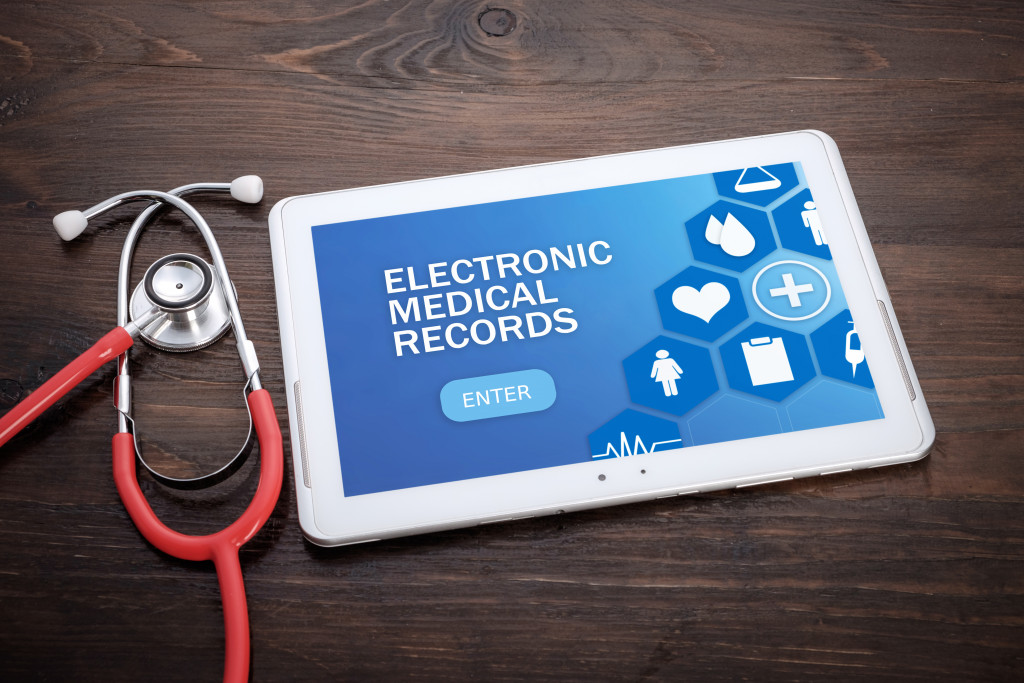- Electronic Health Records (EHR) provide comprehensive patient information and enable more informed decisions
- UV technology is used to eliminate infection risk by sanitizing surfaces and equipment
- Robotic surgery increases accuracy through the use of computer systems controlled by mechanical arms
- Artificial Intelligence (AI) can analyze patient data quickly and accurately for faster results
- 3D Printing is revolutionizing many industries, including healthcare, with tailored solutions and precision replicas.
When it comes to improving patient care and healthcare delivery, modern technology has been a crucial factor. The medical industry is no exception; various technological inventions have revolutionized how treatments are carried out and how data is stored, processed, and retrieved. Technology is playing an ever-increasing role in improving medicine, from the use of robots in surgery to artificial intelligence-powered diagnostics. This guide looks at five technological innovations you can use in the medical industry today.
1. Electronic Health Records (EHR)
As modern healthcare systems become increasingly complex due to advances in medical science, electronic health records (EHR) offer a comprehensive solution for all stakeholders to keep track of patient information efficiently, securely, and centrally. With EHRs, you can access patient records from any location, enabling them to make more informed decisions. EHRs also facilitate communication between you and your patient and allow seamless information sharing.
2. UV Technology
UV technology is being used in medical settings to eliminate the risk of infection and cross-contamination. UV light effectively kills microorganisms, including bacteria, fungi, and viruses, on contact. This makes it an invaluable tool for sterilizing your surfaces and equipment. In some cases, you can even use UV light to sanitize entire rooms or operating theaters. Several companies specializing in UV technology specifically designed them for use in the medical industry. You can use these products to sanitize a range of items, such as surgical instruments, medical devices, and patient beds. Some UV technology companies also specialize in providing disinfection services that utilize UV light.
3. Robotic Surgery

Robots have long been used in industrial settings and are now used increasingly in the medical industry. Robotic surgery uses mechanical arms you control via computer systems, allowing for greater precision and accuracy during surgical procedures. By reducing risk and enabling complex operations to be carried out with minimal tissue invasion, robotic surgery is quickly becoming an indispensable part of modern medicine.
4. Artificial Intelligence
Artificial intelligence (AI) has already had a significant impact on many industries. Its application in healthcare is also rapidly increasing. AI-powered systems can analyze your patient data quickly and accurately — far faster than humans — and can be used to detect potential illnesses or conditions in a fraction of the time it would take you to do the same. AI-based diagnostics is quickly becoming an essential tool in healthcare, allowing you to make more informed decisions when treating patients.
5. 3D Printing
3D printing has revolutionized many industries for some time now, and medicine is no exception. This technology has found many applications in healthcare, from prosthetics to tissue engineering. By allowing complex structures to be printed with precision and accuracy, 3D printing can provide tailored solutions for you that may not have otherwise been possible. This makes it invaluable for certain surgeries or treatments where exact replicas are needed, such as custom prosthetic implants.
FAQs
What are the most common technological innovations being used in the medical industry?

The most common technological innovations being used in the medical industry include electronic health records (EHR), UV technology, robotic surgery, artificial intelligence-powered diagnostics, and 3D printing. Each of these technologies can improve the accuracy and efficiency of healthcare delivery, allowing for more informed decisions.
How does electronic health record (EHR) technology benefit healthcare providers?
Electronic health records provide a comprehensive source of patient information that you can share between care teams. This ensures that your patient data remains consistent across different departments and organizations, improving communication channels and diagnosis accuracy. Additionally, EHRs facilitate quick access to patient history, enabling efficient treatment decisions with greater accuracy.
Why is telemedicine becoming a popular option in medical care?
Telemedicine is the practice of providing medical services through video conferencing and other digital means. It eliminates the need for your patients to travel long distances and reduces wait times at hospitals and clinics. This technology allows you to provide better access to quality care regardless of location or time constraints. Additionally, it helps reduce overall costs by improving efficiencies and reducing hospital readmission rates.
What advantages does advanced imaging technology offer?
Advanced imaging technologies such as 3D printing, robotic-assisted imaging systems, and MRI scans provide a more straightforward diagnosis of diseases and conditions than ever before. They can help you detect minor bodily abnormalities that may have gone unnoticed. Additionally, they offer outstanding visualization capabilities, enabling more accurate diagnoses and improved surgical outcomes.
What are some significant benefits of data analytics platforms in the medical industry?
Data analytics platforms allow you to quickly access vast amounts of patient data and gain valuable insights. You can use them to identify patterns and correlations that help improve care quality, streamline operations, and reduce costs. Additionally, data analytics platforms enable you to track patient satisfaction better and ensure compliance with industry regulations.
To Wrap It Up
The medical industry is being transformed by technology to make treatments more effective and efficient. The five technological innovations discussed here are just a few used in the medical industry today. Still, there is no doubt that this list will continue to grow as modern medicine advances. From electronic health records to 3D printing and everything in between, technology’s potential applications in healthcare are vast.

